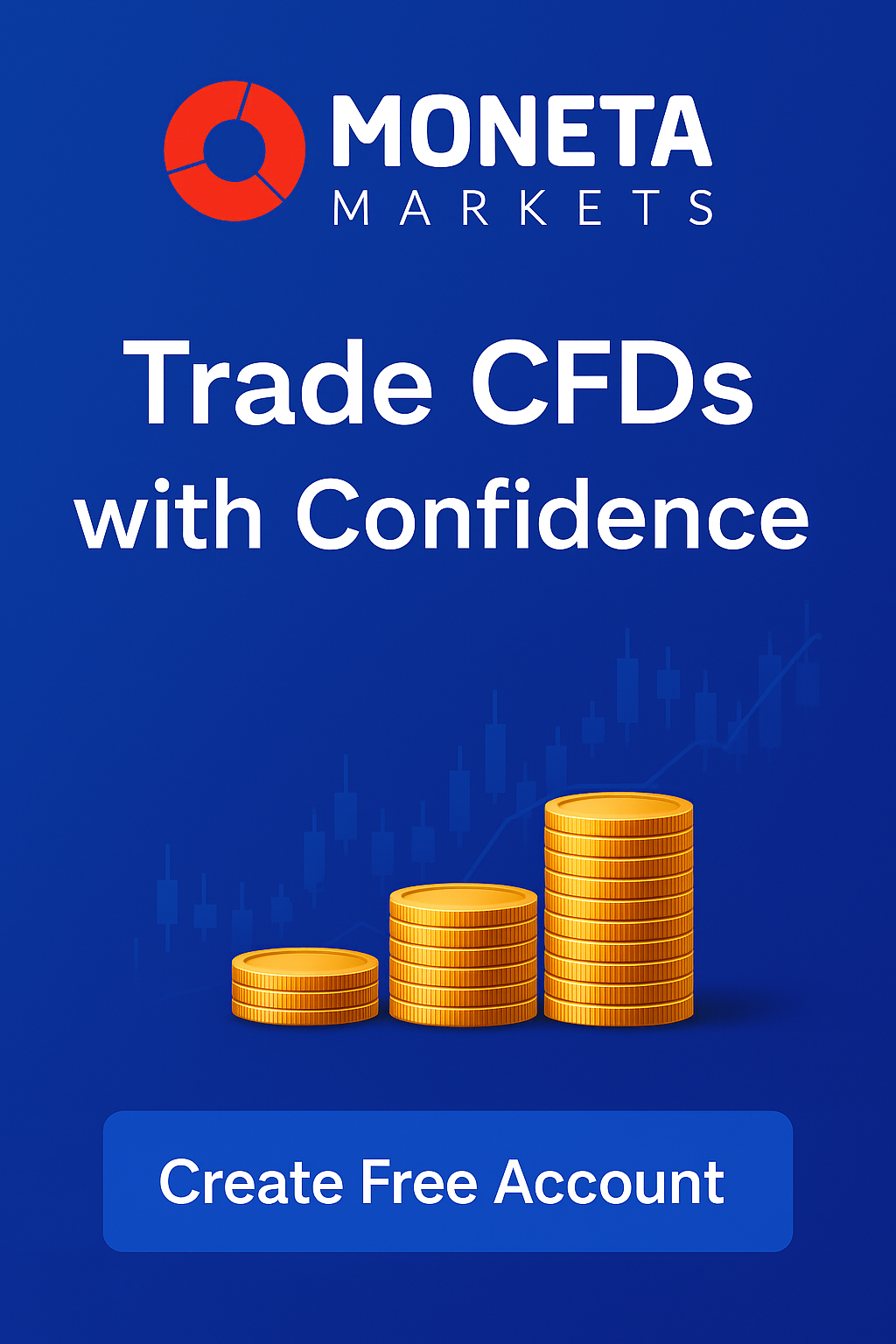CFD Trading in the USA: Is It Legal? (And What Are Your Alternatives?)
Just got your paycheck and feeling the urge to invest, especially with all the buzz around U.S. stock market fluctuations? Many Taiwanese investors are curious about accessing global markets, and CFDs might seem like a quick way to do so. But you’re probably wondering, “How do I get started with U.S. stocks? Any tips for picking?”
This article will answer whether CFD trading in the USA is legal, why it’s restricted, and what legal alternatives are available for US investors. We’ll clarify the rules and show you how to navigate the U.S. trading landscape safely.
What Exactly Are Contracts for Difference (CFDs)?
Contracts for Difference (CFDs) are agreements to exchange the difference in the value of an asset between the time the contract starts and ends. Think of it as betting on whether a stock or commodity will go up or down, without actually owning the underlying asset. For example, you might bet that Apple stock will rise, and if it does, the CFD pays you the difference.

How CFDs Differ from Traditional Stock Ownership
With traditional stock ownership, you actually own a piece of the company. You receive dividends and voting rights. With CFDs, you don’t own anything; you’re merely speculating on the price movement.
Instead of buying and holding Apple shares, you enter into a CFD agreement that mirrors the stock’s performance. This can make CFD trading in the USA very attractive for those seeking short-term gains, if it were legal.
Key Characteristics of CFD Trading (Leverage, Shorting, Global Markets)
CFDs are known for their leverage, allowing you to control a large position with a small amount of capital. This magnifies both potential profits and losses. Shorting, or betting against a stock, is also easily accessible with CFDs.
Another perk is access to global markets. You can trade CFDs on stocks, commodities, and currencies from around the world. These features contribute to the appeal, and also the risk, associated with CFD trading in the USA.
Is CFD Trading Legal for Retail Investors in the USA? The Definitive Answer
The definitive answer is no: CFD trading is not legal for retail investors in the USA. This is a crucial point for anyone considering this type of trading. If you’re based in the US, you can’t legally trade CFDs through brokers targeting retail clients.

Regulatory Stance: CFTC and SEC Prohibitions
The Commodity Futures Trading Commission (CFTC) and the Securities and Exchange Commission (SEC) prohibit CFD trading for retail investors. These regulatory bodies are responsible for protecting investors and maintaining market integrity. They have concerns about the risks associated with CFDs.
The CFTC and SEC have determined that CFDs are too complex and risky for the average retail investor. This is why CFD trading in the USA is restricted.
Why the US Stance Differs from Other Global Regions
Many other countries, such as the UK and Australia, allow CFD trading. The US takes a more conservative approach to protect retail investors. This difference stems from varying regulatory philosophies.
US regulators prioritize investor protection over market accessibility, leading to stricter rules. This is a primary reason for the ban on CFD trading in the USA for retail clients.
The Reasons Behind the US Ban on Retail CFD Trading
The US ban on retail CFD trading is primarily due to concerns about investor protection. Regulators worry about the potential for significant losses and the lack of transparency in the CFD market. They want to protect you from unnecessary risks.

Protection Against Over-the-Counter (OTC) Risks
CFDs are often traded over-the-counter (OTC), meaning they don’t trade on a centralized exchange. This lack of transparency can make it difficult to assess the true value of the contract. It also increases the risk of manipulation.
Trading on a regulated exchange provides more oversight and protection for investors. This is a key reason why the US prefers exchange-traded derivatives over OTC CFDs.
Concerns Over High Leverage and Investor Losses
High leverage, a common feature of CFDs, can magnify losses quickly. A small market movement against your position can wipe out your entire investment. This is a significant risk for inexperienced traders.
US regulators are concerned that retail investors may not fully understand the implications of high leverage. They believe it can lead to unsustainable losses, hence the restriction on CFD trading in the USA.
Lack of Centralized Exchange Oversight
Without a centralized exchange, there’s less oversight and regulation of CFD brokers. This can lead to unfair practices and a lack of accountability. Investors may have limited recourse if something goes wrong.
Regulated exchanges provide a framework for fair trading and dispute resolution. This oversight is a key component lacking in the CFD market, contributing to the US ban.
Legal & Regulated Trading Alternatives for US Investors
While CFD trading in the USA is restricted, US investors have several legal and regulated trading alternatives. These options offer similar opportunities for leverage and market access, but within a safer regulatory framework. Consider these as you plan your investment strategy.

Futures Trading: A Regulated Derivative Option
Futures contracts are agreements to buy or sell an asset at a predetermined price and date. They are traded on regulated exchanges like the CME Group. This provides transparency and oversight.
Futures offer leverage similar to CFDs, allowing you to control a large position with a smaller amount of capital. However, they are subject to stricter regulations, making them a safer alternative to CFD trading in the USA.
Options Trading: Leverage and Hedging Opportunities
Options contracts give you the right, but not the obligation, to buy or sell an asset at a specific price. They can be used for both speculation and hedging. Options are also traded on regulated exchanges.
Options provide leverage and flexibility, allowing you to profit from various market scenarios. They can be a powerful tool, but it’s important to understand the risks involved before trading options.
Exchange-Traded Funds (ETFs) for Diversified Exposure
ETFs are investment funds that hold a basket of assets, such as stocks or bonds. They trade on exchanges like stocks, offering diversification and liquidity. ETFs are a simple way to invest in a variety of sectors.
ETFs don’t offer the same level of leverage as CFDs, but they provide a diversified and regulated way to gain exposure to the market. This is a safer option for beginners.
Traditional Stock Trading and Margin Accounts
You can buy and sell stocks through a brokerage account. Margin accounts allow you to borrow money from the broker to increase your purchasing power. However, margin trading involves risk.
While not exactly like CFD trading in the USA, margin accounts provide some leverage for stock trading. Be sure to understand the terms and conditions of your margin account before using it.
Navigating the ‘Gray Areas’: Prop Firms and International Brokers
Some US residents may attempt to access CFDs through proprietary trading firms or international brokers. However, these avenues come with significant risks and legal complexities. It’s crucial to understand the potential downsides.
Understanding Proprietary Trading Firm Relationships
Proprietary trading firms allow traders to use the firm’s capital to trade, sharing profits with the firm. Some of these firms may offer access to CFDs. However, the legal and regulatory landscape is complex.
Before joining a prop firm, carefully review the terms and conditions. Make sure you understand the risks involved and the firm’s compliance with US regulations.
The Risks of Trading with Unregulated International Entities
Trading with unregulated international brokers carries significant risks. You may not have the same protections as with a regulated US broker. It can be difficult to recover funds if something goes wrong.
These brokers may operate outside the reach of US regulators, making it difficult to enforce your rights. Be extremely cautious when considering this option.
Jurisdiction and Compliance Challenges for US Citizens
US citizens are subject to US laws, regardless of where they trade. Trading CFDs through international brokers may violate US regulations. This can lead to legal trouble and financial penalties.
It is your responsibility to ensure compliance with US laws. Seek legal advice before engaging in any trading activity that may be questionable.
Essential Considerations for US Traders: Risk, Taxes, and Broker Choice
US traders must carefully consider risk management, tax implications, and broker selection. These factors can significantly impact your trading success and financial well-being. Don’t overlook these important aspects.
Understanding Tax Implications of Derivative Trading in the US
Derivative trading, including futures and options, has specific tax implications. Profits are generally taxed as capital gains, but the rules can be complex. Consult a tax professional for personalized advice.
Proper tax planning is essential to avoid surprises and ensure compliance with US tax laws. Keep detailed records of all your trades.
Key Factors in Choosing a Regulated US Broker
Choosing a regulated US broker is crucial for your protection. Look for brokers that are members of the Securities Investor Protection Corporation (SIPC). This provides insurance against broker failure.
Consider factors such as trading fees, platform features, and customer support. Do your research and choose a broker that meets your needs.
Implementing Robust Risk Management Strategies
Risk management is essential for successful trading. Set stop-loss orders to limit potential losses. Diversify your portfolio to reduce overall risk.
Never trade with money you can’t afford to lose. Understand the risks involved and develop a trading plan that aligns with your risk tolerance.
Ready to explore regulated and compliant trading opportunities? Discover trusted brokers and legal investment options tailored for US investors, and start building your trading knowledge responsibly.


No responses yet